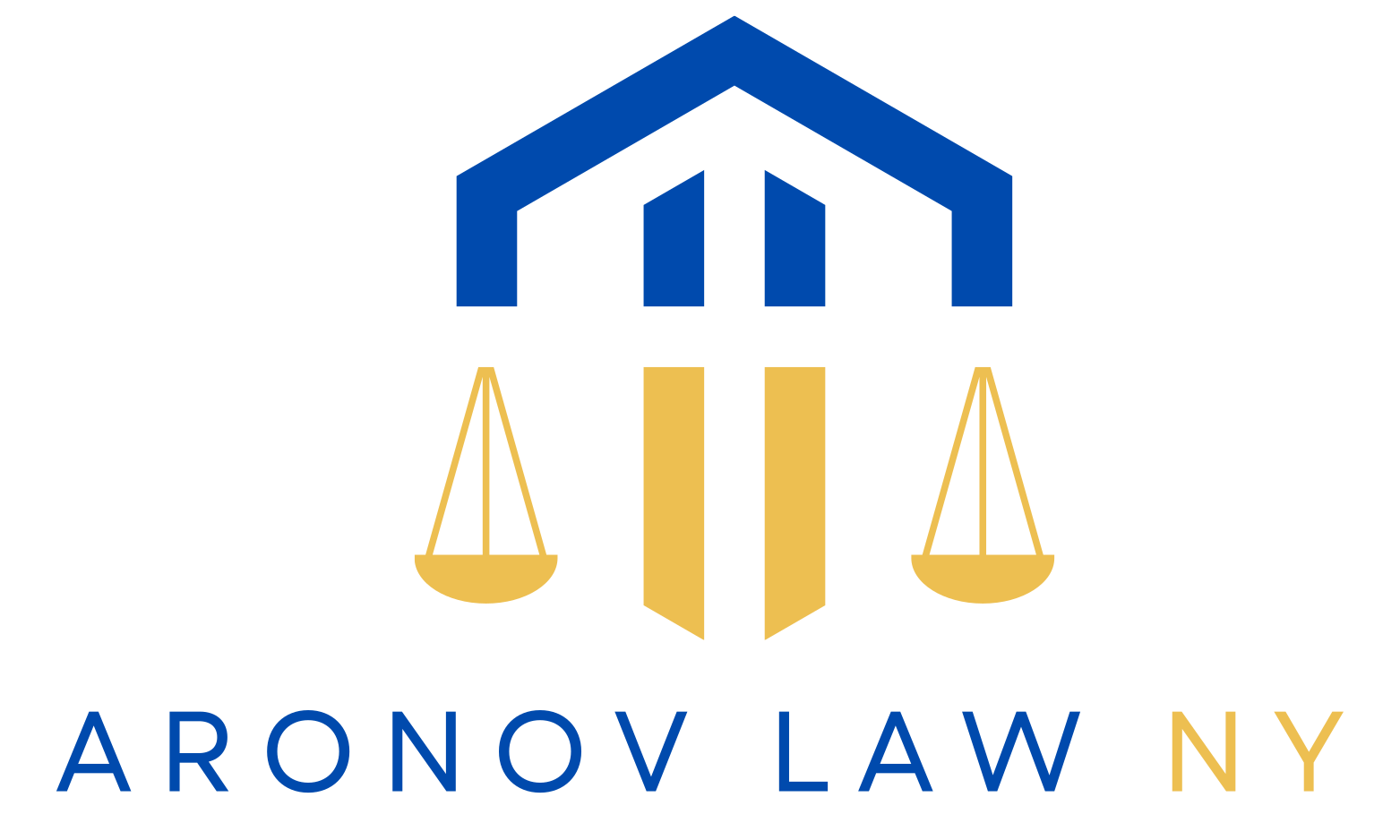Most New York loans contain a 15-day window if a single payment is missed where the mortgage can still be paid without a late fee or consequences. If 3 months have passed of missed payments, this is typically when a foreclosure proceeding will begin
Immediately contact an experienced foreclosure attorney. A written answer to the foreclosure summons must be sent within the first 20 days. At Aronov Law NY, we can guide you through the options to avoid foreclosure.
To avoid foreclosure there are several options, some better for your future and credit rating than others. A loan modification is possible and this is a safer option. A few other options include short sales, deed in lieu of foreclosure and filing for bankruptcy.
A credit rating drop of between 80-160 points (out of a possible 850) will occur due to a foreclosure. This is very harmful and should be avoided.
Foreclosures remain on your record for an average of 7 years. During this time, approval for loans will be more difficult to secure and if you are approved, a higher interest rate will be charged. Your credit rating will not recover at least until the end of this time period.
After a home is successfully foreclosed, it will be either sold in an auction to recover funds or the title will be returned to the lender.
If after the home is sold in an auction there is a remaining debt amount a deficiency judgment can be brought against you for the remaining balance. The lender must attempt to receive this debt within a certain time period or they will be disqualified from doing so in the future. Additionally, courts are able to limit the deficiency judgment amount in some cases. Bankruptcy is also an exit option for this additional amount but will be very harmful to your credit score.
If the home is sold for more than was owed, a qualified NYC lawyer can assist in the court hearing to maximize the amount which will be returned to you.
The average foreclosure proceedings will take about 15 months in New York. It is important to be responsive and take the proper steps throughout the whole process.
Absolutely, lenders in NYC must take certain actions, and if they fail to do so it can postpone or prevent the foreclosure. They must at a minimum provide written notice to the homeowner and written claims with proof of the amount owed.

Contact Us
+1 234 567 891
info@consumerlaw.com
Foreclosure Consultation
Recent View
PRACTICE AREAS
Our Practice Areas
Credit Reporting Attorneys
Credit Reporting Attorneys
Credit Reporting Attorneys
Credit Reporting Attorneys
